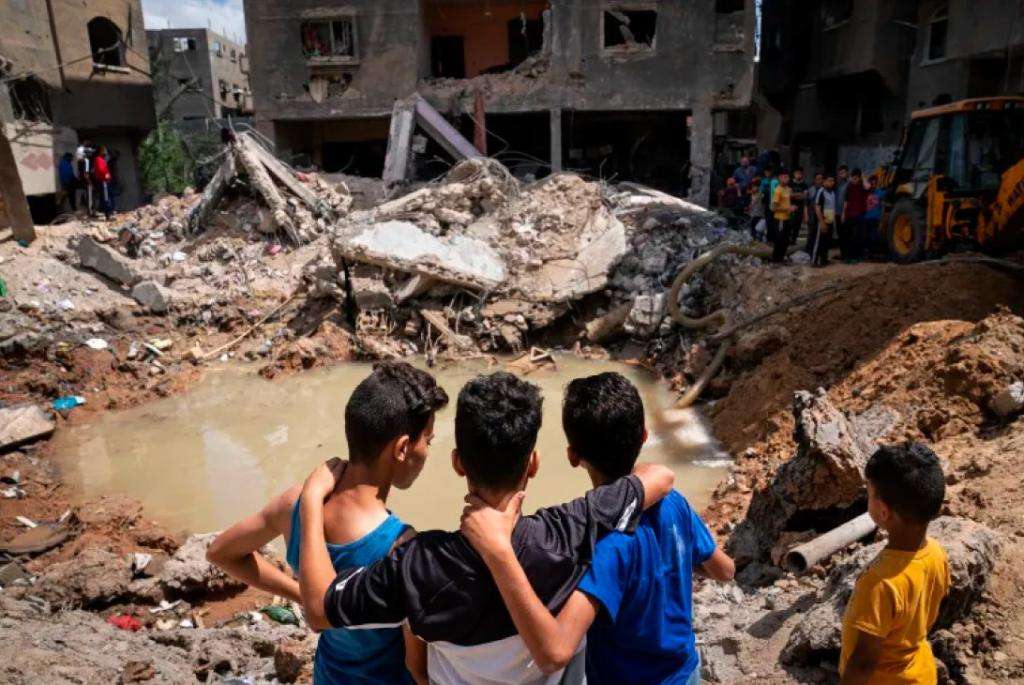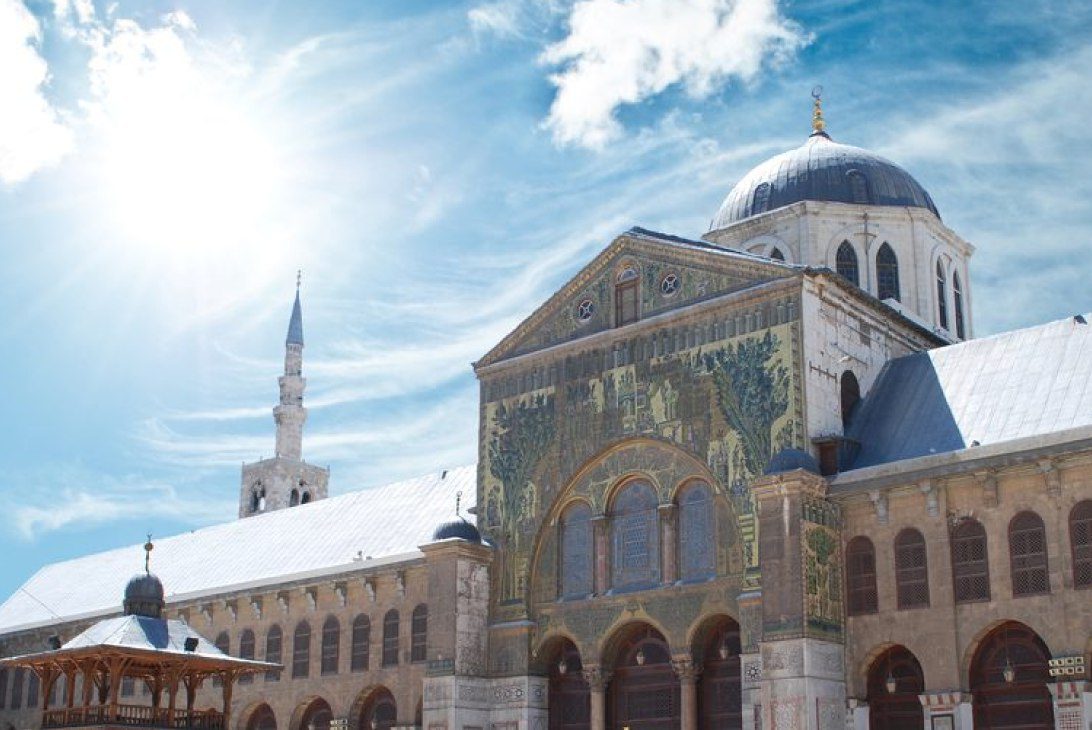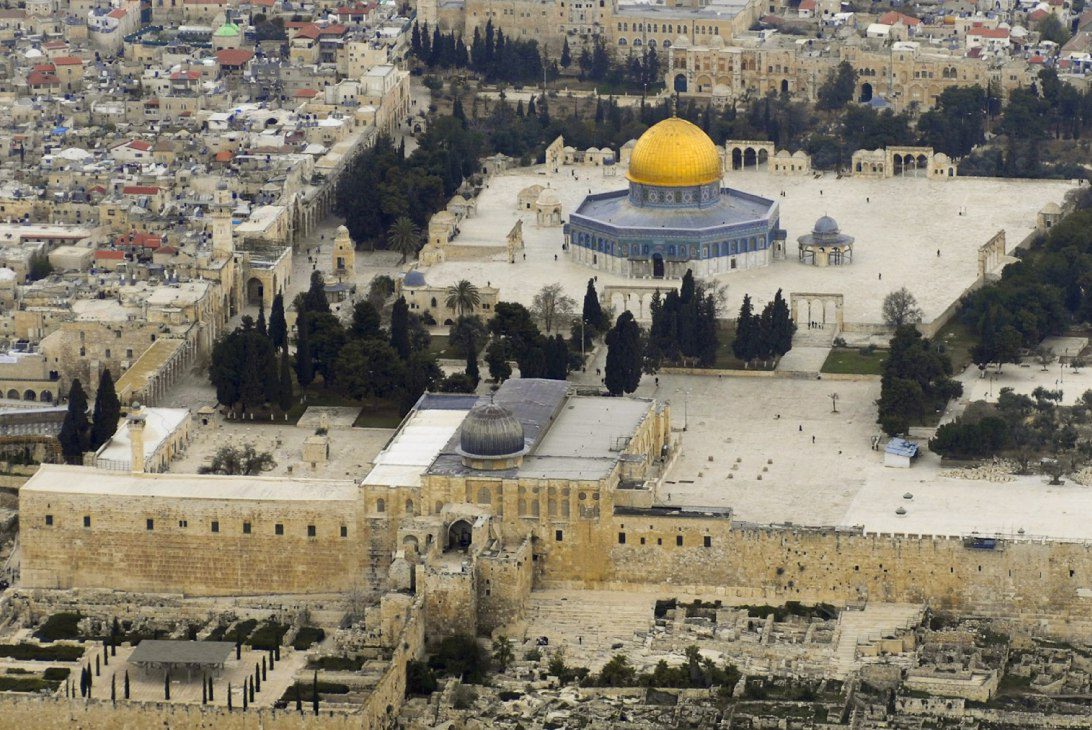In the Qur’ān, Allah ﷻ promises victory to the believers. He ﷻ also explains the path to achieving victory. This path is long, and may be difficult, but here is what’s needed for those who are sincere enough to traverse it:
1) Iman and Righteous Deeds
Firm belief in Allah, righteous deeds, worshipping Allah, and staying away from shirk are all prerequisites of victory. Allah ﷻ says,
وَعَدَ اللّٰهُ الَّذِيْنَ اٰمَنُوْا مِنْكُمْ وَعَمِلُوا الصَّالِحَاتِ لَيَسْتَخْلِفَنَّهُمْ فِي الْأَرْضِ كَمَا اسْتَخْلَفَ الَّذِيْنَ مِنْ قَبْلِهِمْ وَلَيُمَكِّنَنَّ لَهُمْ دِيْنَهُمُ الَّذِي ارْتَضَىٰ لَهُمْ وَلَيُبَدِّلَنَّهُمْ مِّنْ بَعْدِ خَوْفِهِمْ أَمْنًا ۚ يَعْبُدُونَنِيْ لَا يُشْرِكُوْنَ بِيْ شَيْئًا ۚ وَمَنْ كَفَرَ بَعْدَ ذَٰلِكَ فَأُولٰٓئِكَ هُمُ الْفَاسِقُوْنَ
“Allah has promised those of you who believe and do good deeds that He will certainly make them successors in the land, as He did with those before them; and will surely establish for them their religion which He has chosen for them; and will indeed change their fear into security — (provided that) they worship Me, associating nothing with Me…” (24:55).
The greatest means to attaining victory is strong imān and good deeds. Strong īmān entails that the believers fear none but Allah, love Him more than anyone or anything, and put their reliance solely upon Him. They have full hope and yaqīn (certainty) in Him, are content with His decree and grateful for His blessings.
All of the aforementioned ‘actions of the heart’ (love/fear/hope/trust etc) are only truly actualised when a person is tested. For example, anybody can claim that they only fear Allah. But it is only their reaction when they are tested with a seemingly undefeatable army, which will prove if such a person is true in his claim. Trials and tribulations test a person’s īmān, and make apparent whether their claim of being a believer is sincere.
Allah’s promise of victory is not for everyone who claims to have īmān. It is reserved for those whose īmān is firmly embedded. This is because when īmān becomes deeply rooted in the believer’s heart, he is willing to sacrifice his desires and his personal gains for the sake of Allah’s dīn.
This āyah also illustrates that in order to gain authority in the land, the believers have to embody true ʿubudiyyah: worship Allah Alone, and to not commit shirk.
The condition of īmān and ʿamal ṣāliḥ (good deeds) is an all-encompassing condition as it includes what is to follow. However, the following are some of the specific actions mentioned in the Qur’ān.
2) Helping the Din of Allah
Helping the dīn of Allah with sincerity (ikhlāṣ) brings about victory. Allah says,
يـٰٓأَيُّهَا الَّذِيْنَ اٰمَنُوْٓا إِنْ تَنْصُرُوا اللّٰهَ يَنْصُرْكُمْ وَيُثَبِّتْ أَقْدَامَكُمْ
“Believers! If you help the dīn of Allah, He will help you and make you stand firm.” (47:7)
This is a command from Allah to the believers to support the cause of Allah by establishing His dīn, doing daʿwah, and striving in His path.
The ummah has to prepare on many fronts for victory. Everyone can play a role; mountains are made from pebbles so we shouldn’t belittle any action taken for this pursuit.
3) Physical and Material Preparation Accompanied by Tawakkul
Allah ﷻ has commanded the believers to adopt the physical and material means. Allah ﷻ says,
وَأَعِدُّوْا لَهُم مَّا اسْتَطَعْتُمْ مِّنْ قُوَّةٍ
“Prepare against them whatever force you can …” (8:60).
At the same time, their hearts should be attached to Allah, and not the physical means. Allah says,
إِنْ يَّنْصُرْكُمُ اللّٰهُ فَلَا غَالِبَ لَكُمْ ، وَ إِنْ يَّخْذُلْكُمْ فَمَنْ ذَا الَّذِىْ يَنْصُرُكُمْ مِّنْ بَعْدِهِ ، وَعَلَى اللّٰهِ فَلْيَتَوَكَّلِ الْـمُؤْمِنُوْنَ
“If Allah helps you, none can defeat you. But if He denies you help, then who else can help you? The believers should put their trust in Allah Alone” (3:160).
They must be certain that
وَمَا النَّصْرُ إِلَّا مِنْ عِندِ اللّٰہِ الْعَزِيْزِ الْحَكِيْْمِ
“Victory comes only from Allah, the Almighty, the All-Wise” (3:126).
No matter how many enemies unite to attack the believers, no matter how many precious souls are martyred, no matter how many homes, masjids and hospitals are destroyed — the believers should always think good of Allah, have hope in Him and place their full trust in Him Alone. They should have unswerving yaqīn that Allah is with the patient, and that Allah will most certainly help those who help His dīn.
4) Yaqin in the Hereafter and Yearning to Meet Allah
After the time of Mūsā (ʿalayhis-salām), the Banū Isrā’īl marched forth to fight the army of Goliath under the leadership of Ṭālūt. Ṭālūt tested his people at a river: whoever drank more than a handful would not follow him in battle. Most of them drank, leaving only the faithful to venture on. Ṭālūt then led the remaining group of steadfast believers and they went on to win the battle, with Goliath being himself killed by Dāwūd (ʿalayhis-salām) — a young boy at the time.
Allah ﷻ says,
ْفَلَمَّا فَصَلَ طَالُوْتُ بِالْجُنُوْدِ قَالَ إِنَّ اللّٰهَ مُبْتَلِيْكُم بِنَهَرٍ فَمَنْ شَرِبَ مِنْهُ فَلَيْسَ مِنِّي وَمَنْ لَّمْ يَطْعَمْهُ فَإِنَّهُ مِنِّيْ إِلَّا مَنِ اغْتَرَفَ غُرْفَةً بِيَدِهِ ۚ فَشَرِبُوْا مِنْهُ إِلَّا قَلِيْلًا مِّنْهُمْ ۚ فَلَمَّا جَاوَزَهُ هُوَ وَالَّذِيْنَ آمَنُوا مَعَهُ قَالُوْا لَا طَاقَةَ لَنَا الْيَوْمَ بِجَالُوْتَ وَجُنُوْدِهِ ۚ قَالَ الَّذِيْنَ يَظُنُّوْنَ أَنَّهُمْ مُّلَاقُو اللّٰہِ كَمْ مِّنْ فِئَةٍ قَلِيْلَةٍ غَلَبَتْ فِئَةً كَثِيْرَةً بِإِذْنِ اللّٰہِ ۗ وَاللّٰهُ مَعَ الصَّابِرِيْنَ
‘When Ṭālūt marched forth with his army, he said: “Allah will test you with a river. So whoever drinks from it is not with me, and whoever does not taste it—except the one who scoops a little with his hand—is definitely with me.” They all drank from it except for a few of them! When he and the faithful with him crossed the river, they said, “Now we are no match for Goliath and his warriors.” But those who were certain they would meet Allah said, “How many times has a small force vanquished a mighty army by the will of Allah! And Allah is with the steadfast”’ (2:249).
In the above āyah, Allah describes the faithful believers as “those who were certain they would meet Allah” i.e. they did not love the world and they were eager to meet Allah. Despite being a tiny force in comparison to Goliath’s army, their īmān in Allah, their īmān and yaqīn (certainty) in the hereafter and their eagerness to meet Him was resolute. These are the qualities which are essential prerequisites to victory, even when the material and physical resources are limited.
Their laser focus on the hereafter removed the fear of confronting a huge and powerful army, and allowed them to stay firm in a deeply challenging situation. Their hearts were not attached to the world, and they were not afraid of death. They were certain that victory was not about numbers or military strength. Victory was from Allah.
5) Fear of Allah
Another prerequisite is taqwā (piety) and the fear of Allah. Allah ﷻ says,
وَلَنُسْكِنَنَّكُمُ الْأَرْضَ مِنْ بَعْدِهِمْ ۚ ذَٰلِكَ لِمَنْ خَافَ مَقَامِيْ وَخَافَ وَعِيْدِ
“And We will surely make you reside in the land after them. This is for whoever fears standing before Me and fears My warning” (14:14).
He also says,
قَالَ مُوْسىٰ لِقَوْمِهِ اسْتَعِيْنُوْا بِاللّٰهِ وَاصْبِرُوْا ، إِنَّ الْأَرْضَ لِلّٰهِ يُوْرِثُهَا مَنْ يَّشَآءُ مِنْ عِبَادِهِ ، وَالْعٰقِبَةُ لِلْمُتَّقِيْنَ
“Mūsā said to his people, ‘Seek Allah’s help and be patient. Indeed, the earth belongs to Allah. He grants it to whoever He chooses of His servants. The future belongs to those who are God-fearing’” (7:128).
Those who have taqwā are those who obey Allah’s commandments and stay away from His prohibitions. In other words, those who are God-fearing, God-conscious and obedient servants of Allah will always have the final and best outcome.
6) Sabr
A key prerequisite to victory is ṣabr. Allah ﷻ says,
وَلَقَدْ كُذِّبَتْ رُسُلٌ مِّنْ قَبْلِكَ فَصَبَرُوْا عَلىٰ مَا كُذِّبُوْا وَأُوْذُوْا حَتّىٰٰٓ أَتٰهُمْ نَصْرُنَا ، وَلَا مُبَدِّلَ لِكَلِمتِ اللّٰهِ
“Indeed, Messengers before you were rejected but patiently endured rejection and persecution until Our help came to them. And no one can alter the promises of Allah…” (6:34).
Similarly, Allah ﷻ says,
وَإِنْ تَصْبِرُوْا وَتَتَّقُوْا لَا يَضُرُّكُمْ كَيْدُهُمْ شَيْئًا ۗ إِنَّ اللّٰهَ بِمَا يَعْمَلُوْنَ مُحِيْطٌ
“…If you are patient and mindful of Allah (have taqwā), their plotting will not harm you in the least. Indeed Allah is Fully Aware of what they do” (3:120).
Victory is reserved for those who earn it: those who persevere and stand firm till the end in the face of all adversity and misfortune, never wavering but always certain that Allah’s help is on its way.
7) Paying Zakah, Encouraging The Good & Forbidding The Evil
Establishing ṣalāh, paying zakāh, encouraging what is good and forbidding the evil all lead to victory. Allah ﷻ says,
اَلَّذِيْنَ إِنْ مَّكَّنّٰهُمْ فِى الْأَرْضِ أَقَامُوْا الصَّلوٰةَ وَاٰتَوُا الزَّكوٰةَ وَأَمَرُوْا بِالْمَعْرُوْفِ وَنَهَوْا عَنِ الْمُنْكَرِ ، وَلِلّٰهِ عٰقِبَةُ الْأُمُوْرِ
“(They are) those who, if We give them authority in the land, they establish prayer, pay zakah, encourage what is good, and forbid what is evil. And with Allah rests the outcome of all matters” (22:41).
The Messenger of Allah ﷺ said, “By the one in whose Hand is my soul, you will encourage good and forbid evil or else Allah will soon send a punishment from Him upon you. Then you will supplicate to Allah and it will not be accepted” (Tirmidhī).
8) Salah & Tahajjud
Along with the mention of establishing ṣalāh in the aforementioned āyah, Allah ﷻ also says,
وَاسْتَعِينُوْا بِالصَّبْرِ وَالصَّلَاةِ وَإِنَّهَا لَكَبِيْرَةٌ إِلَّا عَلَى الْخَاشِعِيْنَ. الَّذِيْنَ يَظُنُّوْنَ أَنَّهُمْ مُّلَاقُوْا رَبِّهِمْ وَأَنَّهُمْ إِلَيْهِ رَاجِعُوْنَ
“And seek help through patience and ṣalāh, and indeed, it is difficult except for those are humbly submissive (to Allah); those who are certain that they will meet their Lord and that they will return to Him” (2:45-6).
Establishing ṣalāh (on its appointed time, with all its pillars and conditions, and with full focus and humility) leads a person to being strongly attached to Allah. Ṣalāh is one of the greatest means of strength. Allah repeatedly instructs His beloved Prophet Muhammad ﷺ to draw strength through ṣabr and ṣalāh.
Along with the compulsory prayers, establishing the night prayer (tahajjud) provides great spiritual and physical strength. Night prayer leaves a deep impression on the soul as it requires a person to fight his nafs and Shayṭān. When Allah ﷻ wanted to prepare the Prophet ﷺ for his weighty message, He chose for him night worship. Allah says,
يـٰٓأَيُّهَا الْمُزَّمِّلُ . قُمِ اللَّيْلَ إِلَّا قَلِيلًا . نِّصْفَهُ أَوِ انقُصْ مِنْهُ قَلِيلًا . أَوْ زِدْ عَلَيْهِ وَرَتِّلِ الْقُرْآنَ تَرْتِيلًا . إِنَّا سَنُلْقِي عَلَيْكَ قَوْلًا ثَقِيلًا . إِنَّ نَاشِئَةَ اللَّيْلِ هِيَ أَشَدُّ وَطْئًا وَأَقْوَمُ قِيلًا
“O you wrapped up (in your clothes)! Stand at night (in prayer) except a little — half (the night), or a little less, or a little more—and recite the Qur’ān slowly and distinctly. We will soon send down to you a weighty revelation. Indeed, worship in the night is more impactful and suitable for recitation” (73:1-6).
After the Battle of Qādisiyyah (15 AH), Saʿd b. Abī Waqqāṣ (raḍiy Allāhu ʿanhu) sent a letter to ʿUmar b. al-Khaṭṭāb (raḍiy Allāhu ʿanhu), relaying to him the good news of the victory. In the letter, he mentioned: ‘Saʿd b.ʿUbayd the Reciter (raḍiy Allāhu ʿanhu) was martyred, and so-and-so, and so-and so was martyred, and men amongst the Muslims who are only known to Allah; He surely knows them… When night would fall, they would recite the Qur’ān like the buzzing of the bees; and during the day, they were lions unlike any other.’
When Ṣalāḥuddīn al-Ayyūbī (raḥimahullāh) would pass by a tent and hear that those inside it were performing tahajjud, he would say: “This is where victory comes from.” And when he would find a tent with people sleeping inside it, he would say, “This is where defeat comes from.”
9) Dhikr
The remembrance of Allah is one of the most powerful sources of strength. Allah ﷻ says,
يـٰٓأَيُّهَا الَّذِيْنَ اٰمَنُوْٓا إِذَا لَقِيْتُمْ فِئَةً فَاثْبُتُوْا وَاذْكُرُوا اللّٰهَ كَثِيْرًا لَّعَلَّكُمْ تُفْلِحُوْنَ
“Believers! When you encounter a group (in battle), stand firm and remember Allah abundantly, so you may triumph.” (8:45)
Even in the thick of a battle, when one’s focus is defeating the enemy, Allah ﷻ commands the believers to remember Him abundantly, as this is the secret of success.
Dhikr increases one’s awe and fear of Allah. It removes unhealthy fears and gives one courage to face extremely challenging circumstances. When Allah instructed Mūsā and Hārūn (ʿalayhimas-salām) to go and confront Pharaoh, he said:
اِذْهَبْ أَنتَ وَأَخُوْكَ بِآيَاتِيْ وَلَا تَنِيَا فِيْ ذِكْرِيْ
“Go, you and your brother, with My signs and do not slacken in My remembrance” (20:42).
They were told to arm themselves with dhikr for this momentous task ahead of them. Dhikr lightens burdens, makes it easier to sacrifice, and attaches one’s heart to Allah.
Allah ﷻ says,
فَاصْبِرْ إِنَّ وَعْدَ اللّٰهِ حَقٌّ وَّاسْتَغْفِرْ لِذَنْبِكَ وَسَبِّحْ بِحَمْدِ رَبِّكَ بِالْعَشِىِّ وَالْإِبْكرِ
“So be patient — Allah’s promise is certainly true. Seek forgiveness for your shortcomings. And glorify the praises of your Lord morning and evening” (40:55).
Allah is reassuring His beloved ﷺ – and by extension us – that His promise is true: stay patient and you will see the fulfilment of His promise. And just as every journey requires one to take provisions, Allah reminds us that the provision needed on this journey is istighfār and dhikr, especially in the morning and the evening. Doing istighfār and dhikr purifies and prepares the soul – this is the internal ‘victory’ that one attains, which is then followed by the ‘external’ victory.
10) Seeking Allah’s Help (Duʿa)
Allah ﷻ says,
قَالَ مُوْسىٰ لِقَوْمِهِ اسْتَعِيْنُوْا بِاللّٰهِ وَاصْبِرُوْا ، إِنَّ الْأَرْضَ لِلّٰهِ يُوْرِثُهَا مَنْ يَّشَآءُ مِنْ عِبَادِهِ ، وَالْعٰقِبَةُ لِلْمُتَّقِيْنَ
“Mūsā said to his people, ‘Seek Allah’s help and be patient. Indeed, the earth belongs to Allah. He grants it to whoever He chooses of His servants. The future belongs to those who are God-fearing’” (7:128).
In this āyah, Mūsā (ʿalayhis-salām) is instructing his people to seek the help of Allah. Seeking Allah’s help is half of the dīn: it is a sign of one’s true īmān, as one attaches his heart to Allah and hopes sincerely in Him Alone. The believer acknowledges his own weakness, and believes with certainty that it is only Allah who can grant victory. He relies on Him Alone, and does not rely on numbers or weapons.
The Battle of Badr is well-known for being a day of victory. But it is vital to also remember that the Messenger of Allah ﷺ begged Allah throughout the whole night prior to it for this great favour. ʿAli b. Abī Ṭālib (raḍiy Allāhu ʿanhu) said, “There wasn’t a horseman amongst us on the day of Badr except for Miqdād (raḍiy Allāhu ʿanhu). I observed that all of us were sleeping except the Messenger of Allah ﷺ who was under a tree, praying and crying until the morning” (Aḥmad).
On the day itself before the battle commenced, the Prophet ﷺ faced the qiblah and raised his hands towards the sky and pleaded with his Lord: “O Allah, fulfil the promise You made to me. Give me what You have promised. O Allah, if this small group of Muslims is destroyed, You will not be worshipped on earth.”
The Prophet ﷺ continued to ask Allah in this manner until his upper garment fell off his shoulders. Abū Bakr (raḍiy Allāhu ʿanhu) came, wrapped the garment around the Prophet, hugged him from behind, and said: “That will suffice! He ﷻ will fulfil His promise to you.” Then Allah revealed the āyah:
إِذْ تَسْتَغِيثُونَ رَبَّكُمْ فَاسْتَجَابَ لَكُمْ أَنِّيْ مُمِدُّكُمْ بِأَلْفٍ مِّنَ الْمَلَآئِكَةِ مُرْدِفِيْنَ
‘(Remember) when you cried out to your Lord for help, He answered: “I will reinforce you with a thousand angels—following one another”’ (8:9).
Allahu Akbar! Here is the Prophet of Allah, in the company of the best of people on earth, about to fight and defend Allah’s dīn, and yet he remains immersed in making duʿā’ in this desperate manner.
Many years later, when Qutaybah b. Muslim lay siege to Kabul, he enquired about Muhammad b. Wāsiʿ, a renowned scholar and worshipper, who was a part of the Muslim army. Muhammad b. Wāsiʿ was found crying and pointing with his finger towards the heavens, and he was heard saying, “O the One who hears the supplications, we have great hope in You. O Allah, make us stand firm, let our arrows hit their targets, and raise our banners.” When Qutaybah was informed about this, he remarked, “By Allah, the finger of Muhammad b. Wāsiʿ is dearer to me than a hundred thousand strong young men and a hundred thousand unsheathed swords.” The battle then began, and ended with victory for the believers.
Another powerful weapon is the duʿā’ and the sincerity of those who are weak and needy. The Prophet ﷺ said, “Indeed Allah grants victory to this Ummah due to its weak members — through their supplications, ṣalāh and their sincerity” (Nasā’ī).
The next article will inshaAllah explore what blocks victory.






